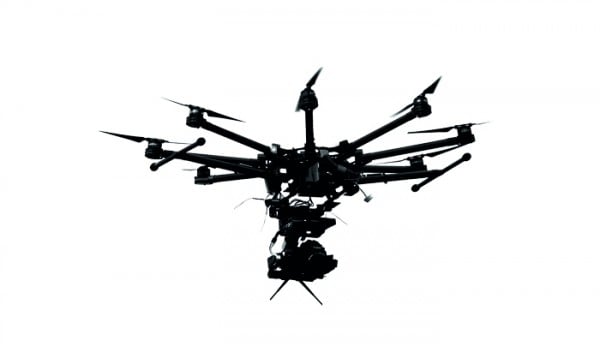
Digital media and advertising innovation were the central themes at this year’s summit. Here’s what everyone was talking about
Virtual Reality
Virtual reality has been a facet of almost every tech tradeshow this year and Arabnet was no different, with Dubai-based company 360MEA showcasing its 360 exclusive video experiences. Brayden Ainzuain, global digital director of Starcom, explains: “VR will bring the global agency closer as meetings will never be the same. We’ll be able to feel like neighbors with guys who are sitting on the other side of the globe through Virtual Workspaces. It’ll help us deliver a better first version or iteration in the physical world as creative. Consequently, clients will be able to fully feel and see executions and work before it’s actually physically delivered, saving time, resources, and money. It may improve product testing from a focus group aspect which agencies are part of by see actual reactions vs. hypothetical reactions. Richer content experiences will make or break the client’s product as users will have the same expectations built from Virtual into Real.”
Artificial Intelligence
From Terminator Genysis, Ex Machina to the UK television show Humans, artificial intelligence (AI) has been buzzing around the media for the past 12 months. PHD brought this home to the Middle East at its Brainscape conference last October. But is it all still mostly just talk? Not necessarily says Scott Amyx, founder and CEO of San Francisco Internet of Things company Amyx +. However, the virtual assistant tools around today such as Siri and its offshoot Viv are still defined as ‘weak AI’, he says. Strong AI will naturally enhance the levels of automation in peoples’ lives. But, instead of turning people themselves into robots, strong AI will make them more in touch their human potential, Amyx believes. “The research area we’re doing is looking at the qualitative humanistic side of behaviour,” he says. How do we use AI to have inherent things such as friendship, humour and confidence? First it starts with self-awareness, so using somebody’s sensory that comes from mobile applications, wearables, etc. and processing of the normalised data to interpret and apply algorithms to it to track that emotional cognition and behaviour complex. When you do that you start to understand things like when you’re with one person you feel awful, but with another you feel great. If you became more self-aware with that, you think that’s a friend I may be don’t need to see that much.”
Drones
Flying into this year’s ArabNet was Saudi aerial scanning start-up FalconViz, a 3D aerial scanning system that uses drones to map and model construction sites. In fact drones have been flying about so much recently that the UAE even brought in laws to clip their wings for amateur users in January. But in advertising, the potential is unlimited, with uses ranging from planning media campaign, monitoring them and providing a unique role in activation. Ainzuain says: “Drones can help us audit the potential eyeballs that expensive OOH locations are yielding in different parts of the city through drone monitoring capabilities. This translates into better ROI measurement against other media such as digital. We’ll be able to map out the consumer journey throughout the city by having a vantage point via the drone, helping us deliver on better ad placement in a city like Dubai.”
He adds: “Collecting proof of ad execution becomes easier, as we don’t need to rely on third parties to take pictures of different locations. For contests, we’d able to deliver prizes faster and capture their reactions in real-time. Additionally, based on live traffic of events supported by advertising we can dial up or down the investment in real-time.”
From print to app
Volkswagen may have given its communications department a few new white hairs last year, but its recently launched office in Riyadh may have got a hold on a flourishing Augmented Reality market. Adel Baraja, director of marketing at Volkswagen said how using a bar code on print ads to download an app had led to boost in the number of buyers booking test drives in the kingdom. “People often want to download it when they are in the discovery phase of their purchase journey,” he explains. “Last year we had 26,000 downloads. Conversion to test drive is about 2 or 3 per cent. It’s very new; people are still getting used to the idea they can shop for a car on an app.”









